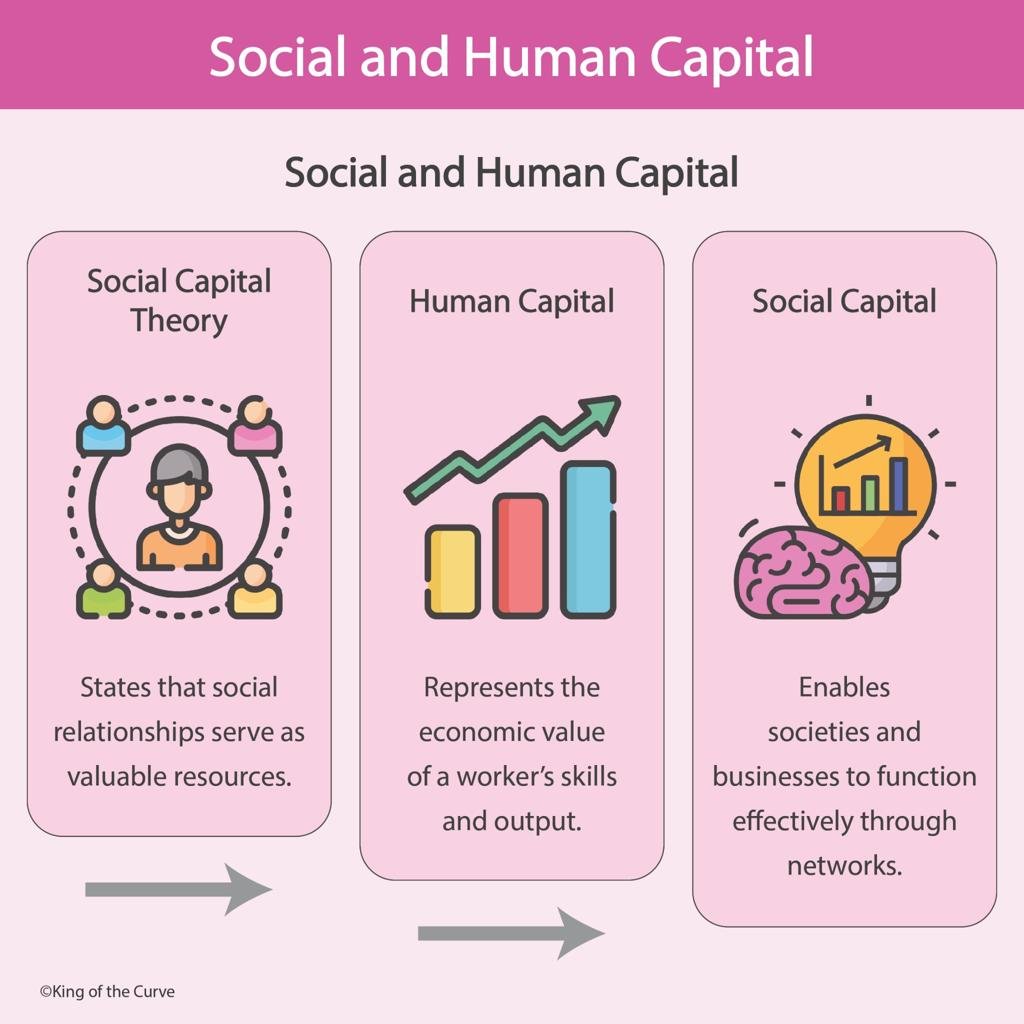🧠 Social and Human Capital on the MCAT: Understanding Societal Resources and Productivity
When preparing for the MCAT, it's not just about memorizing biology or physics facts—it's also about grasping how societies function and how individuals interact with larger systems. Social and human capital are foundational concepts in sociology and psychology that appear frequently in MCAT questions, especially in the Psychological, Social, and Biological Foundations of Behavior section.
This blog breaks down:
The difference between human and social capital
Their theoretical significance and applications
How they show up in MCAT-style scenarios
🧍♂️ What Are Social and Human Capital?
| Concept | Description |
|---|---|
| Human Capital | The economic value of a person's skills, knowledge, and productivity. Think: education, training, work experience. |
| Social Capital | The value derived from networks, relationships, and social trust. Think: mentorship, community ties, support systems. |
💡 Social Capital Theory proposes that strong social ties are resources that enable individuals and communities to succeed.
👩⚕️ MCAT-Relevant Scenarios
| Scenario | MCAT Interpretation |
|---|---|
| A student gains an internship through a professor’s recommendation | Social capital — leveraging connections |
| A person improves job prospects after earning a certification | Human capital — increased skill set and economic value |
| A support group helps a recovering addict stay sober | Social capital — emotional and behavioral reinforcement |
🧠 Strategy for MCAT Success
✅ Distinguish between types of capital – financial, social, cultural, and human are different
✅ Know where they show up – typically in sociology and psych passages
✅ Link to inequality and access – social capital is often limited in underserved communities, while human capital can be improved via education
📝 MCAT Sample Question
Q: A student from a disadvantaged background earns a scholarship through mentorship and academic support. What does this scenario best illustrate?
A. Human capital only
B. Social capital only
C. Both human and social capital ✅
D. Cultural capital
Rationale: Mentorship (social capital) facilitates skill development and access to education (human capital).
🧭 Summary
Human capital = individual productivity
Social capital = value of relationships
Both are tested on the MCAT in context of success, mobility, and inequality
Apply these concepts to real-life case-based scenarios on the exam
Frequently Asked Questions (FAQs)
-
Aim for 4-6 focused hours, ensuring you incorporate breaks to avoid burnout.
-
Practice mindfulness techniques, take practice exams under realistic conditions, and maintain a balanced lifestyle.
-
Set short-term goals, seek support from mentors, and reward yourself for small achievements.
-
Regular exercise improves focus, reduces stress, and enhances overall mental clarity.
-
KOTC offers personalized learning tools, gamification features, and adaptive question banks to help students stay on track without burnout.


